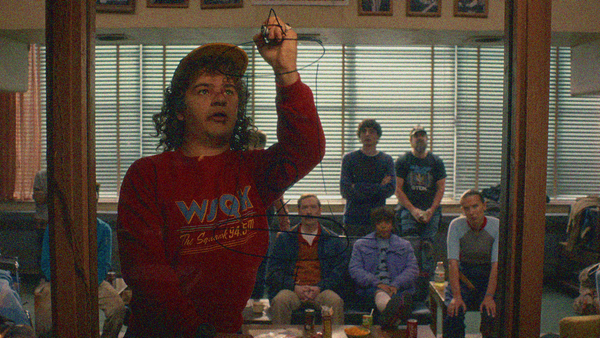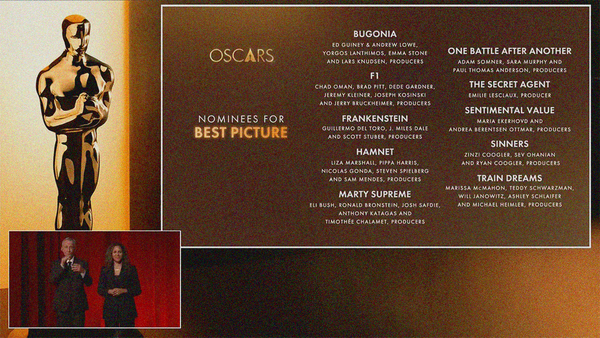Week Ending 3/28/25
Tax break AND sale?
The big news out after the release of The Day the Earth Blew Up was that Ketchup Entertainment—the studio that saved the latest Looney Tunes property from WB’s shelf—was in talks to also purchase Coyote vs. Acme. It makes sense. Especially since WB appears to have lowered its price point (reported at 95 million last year and now down to 75).
Here’s the wrinkle: wasn’t it destroyed? Everything I heard about it and Batgirl was that the tax break for never releasing them meant they could never be released. Talk of “wake-like” screenings before pressing delete seemed to corroborate this too. Is that therefore why WB re-engaged with a potential sale now? Is next month’s Tax Day the deadline to purge the title forever? (I don’t know how corporate tax works.)
Either way, the fact that a studio can simply disappear a film it has already drummed up interest for is wild. Sure, if it’s a clunker that just can’t find a good edit (and the creators agree, like with Michel Gondry and Pharrell Williams’ Golden). But Coyote vs. Acme tested great. The cast loves it (Will Forte takes every chance he gets to bad-mouth WB for refusing to let it see the light of day). It will recoup its budget.
I hope Ketchup secures the rights and we get to see the final product. I’d love to add the scene with Wile E. Coyote holding up the “*&%*@” sign to cinematicfbombs.com. And then this guy can finally go home.
What I Watched:
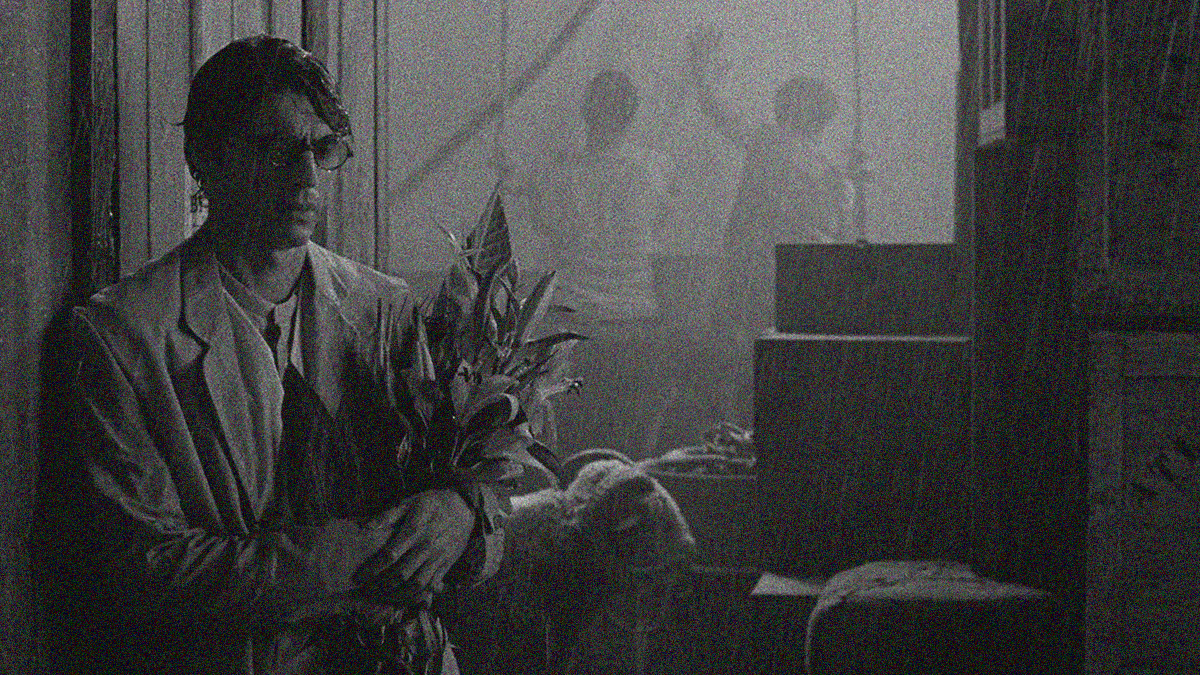
GRAND TOUR
(limited theaters, streaming on MUBI soon)
It's an hour into Edward's (Gonçalo Waddington) journey that we finally learn the plot to Miguel Gomes' latest Grand Tour. Not that it's a necessary thing to know. His tale of leaving Rangoon the moment his fiancé (Crista Alfaiate's Molly) arrived from London is less a purposeful discovery to understanding the film than a reason for its existence. Gomes could have just taken us on this tour of Asia without these characters as guides—especially since half the film shows each country and culture's present-day while narrators tell us what Edward and Molly are doing back in 1918. I can't say if that would have been better.
I can, however, say Grand Tour was not for me. It's obviously well-made with some insightful commentary on humanity, colonialism, and post-colonialism, but I found it near impossible to stay alert enough to try parsing any of it. This was true about the superficial romance used as its scaffolding too considering its admittedly humorous premise (a man sailing across Asia to avoid getting married keeps being thrown out because it's easier for them to believe he's a western spy than a massive coward) carries little payoff beyond that gag.
Only when he realizes he hasn't heard from her (Molly is hot on his trail, warning him with telegrams that ultimately ensure she'll never catch-up) do we rewind to follow her path. That's when the contrast between man and woman arises with Edward wanting to stay in these beautiful countries only to be pushed out due to mistrust while everyone wants Molly to stay only for her to ruthlessly exploit them for her pursuit. She goes from endearing jokester who laughs by blowing raspberries to opportunistic murderess very quickly.
I probably should feel something by the end either via this tragic love story or the over-arching cultural epic of a continent that survived its European infestation, but it was tough to latch onto the fiction or the documentary. That said, this will definitely hit those who do catch Gomes' wave and ride its sluggish pacing and thematic cross-cut allusions with relish. I'm glad to have watched it, but I was also relieved upon its end.
- 6/10
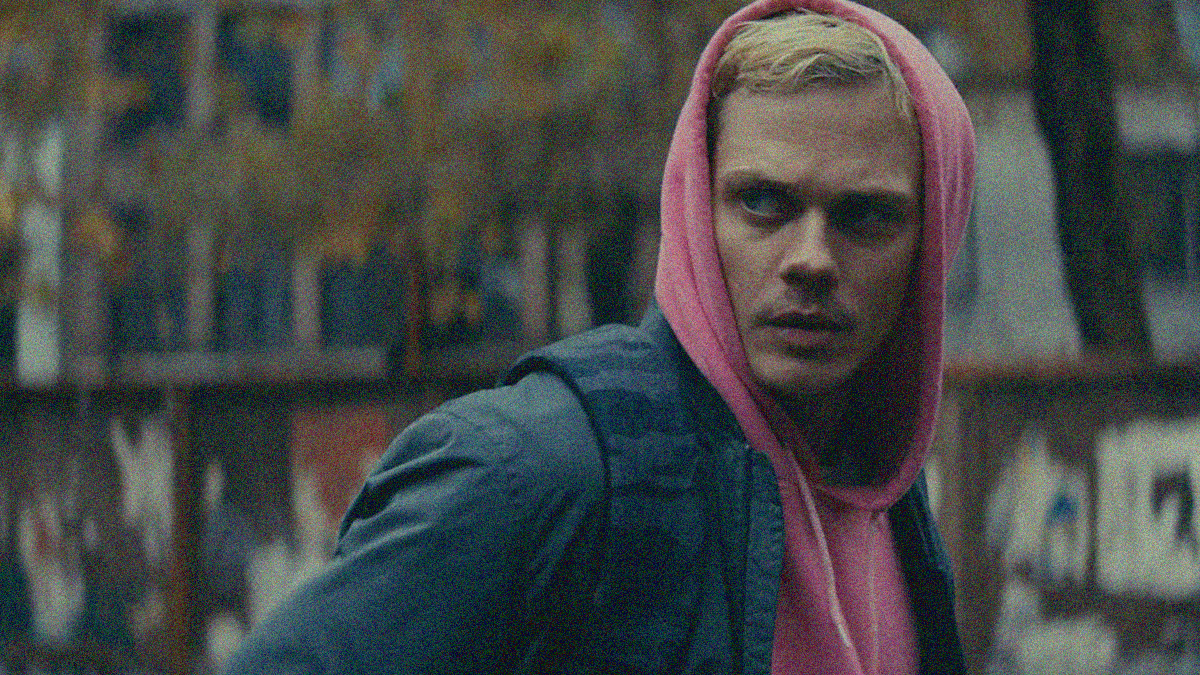
LOCKED
(in theaters)
While David Yarovesky's Locked might be based on an Argentinian film (Michael Arlen Ross adapts Mariano Cohn and Gastón Duprat's 4x4), it's also very much a metaphor for today's America. The car is our country. Expensive, luxurious, and seemingly open to welcome in those who wish to turn their lives around and prosper. As soon as someone enters it, however, they watch as the roads paved in gold dissolve to reveal a cruel and vindictive system of torture porn-level bureaucratic "tests" that are rigged to cause you pain while the tester laughs and revels in their self-satisfied sadism.
William (Anthony Hopkins), the rich, self-pitying doctor who fancies himself a "self-made" man who's had to watch the rabble destroy his "great nation" while stoking his anger with fear rather than quelling it with charity (think Ebenezer Scrooge if the producers making that weird horror universe of public domain children's IP added Charles Dickens to the catalog), is our government. Old, white, male, and entitled. He's so far removed from what it means to be a person struggling to succeed in a system built to fail them that he keeps living on spite to punish them more by reinforcing that system to become even crueler. All to protect his gilded cage. To protect his sense of superiority.
Eddie Barrish (Bill Skarsgård) is us. Yes, he's a deadbeat dad and petty thief too, but the film takes pains to ensure we know he's trying to be better. He's an archetype we're taught to despise as a villain who's given the sort of two-dimensional room for empathy to appreciate how straying from a path of righteousness is often necessary to keep your head above water long enough to build a solid life. And even then you're still probably living paycheck to paycheck with the threat of one bad health scare pulling you back down into poverty. Because even if the mechanic did give Eddie a break and let him take his van back to pay off the debt later, they're all still "working poor."
That's where the difference lies. "Working poor" are battling the system to survive. "Working rich" is an oxymoron. The big action scene at the center of Locked deals with William trying to tell Eddie that he and his ilk (epitomized by two thugs beating up a civilian in an alley) broke the "social contract" first. If they are allowed to abuse, steal, and kill, why shouldn't he? It's the sort of superficial false equivalency that the one-percenters and their republican sycophants love to smirk about despite having no basis in reality. I'm not condoning crime, but there is a difference between someone doing something horrible with their back against the wall and someone who wants for nothing shooting them in the head with a grin. One is attempting to survive. The other is having fun.
Does this film have the ability to truly mine that nuance? No. It's a thriller that leans into the disparity between someone who can afford to build a car with a big enough battery to imprison and torture a victim for days on end and that victim who literally only needs four hundred bucks to stay afloat. Men like William will watch this film and believe he's the good guy. They'll treat his actions like the revenge fantasy their lawyers tell them they don't actually have enough money to commit themselves without consequences. To the wrong audience, Yarovesky has "both sides" the argument because they cannot parse the fact that they are the bad guys. If they just paid taxes, so much of America would be different.
To the correct audience, however, Locked is a pretty accurate depiction of where we are right now. A populace beholden to the whims of an oligarchy setting obvious traps to justify its own violence. The ironic thing is, of course, that the traps they set are always more expensive than the solutions the populace has requested from them. Rather than spend a few million to augment an already working process that combats injustice, billionaires will pay hundreds of millions to erase that process completely and pocket the savings themselves. Why? Because punishment is the point. The Williams of the world don't want justice. They want to be Gods.
Like so many executives who inevitably become too complacent to understand their own evolving industry and product, though, they forget the people they pay to make their prisons are often the ones they're trying to trap within them. William believes his bullet-proof and electrified SUV is an impervious vehicle because it is to someone who knows nothing about how it's made. Sure, the name Dolus (Latin for deception) is a fun nod to it being a Trojan Horse of sorts for Eddie, but I wonder if Achilles would have been more accurate since it possesses a single, very specific weakness. Either way, desperation is always more dangerous than hubris. And if our current government continues to treat us like criminals regardless of guilt, they'll find out.
Making up for its lack of nuance as far as not accidentally fueling the bad guys' sanctimony is a suspenseful narrative that allows Skarsgård to command our attention as the protagonist for once. Hopkins is mostly relegated to voice work as his William lays out his hypocrisy and privilege while subduing his prisoner with loud yodeling and extreme HVAC temperatures. The film gets pretty dark once William reveals his conscience is fully broken and the car's static locale shifts to high-speed horror and remote-controlled brutality. One man strives to be the smartest one in the room while the other gradually chips away at proving intellect is no match for ingenuity.
- 6/10
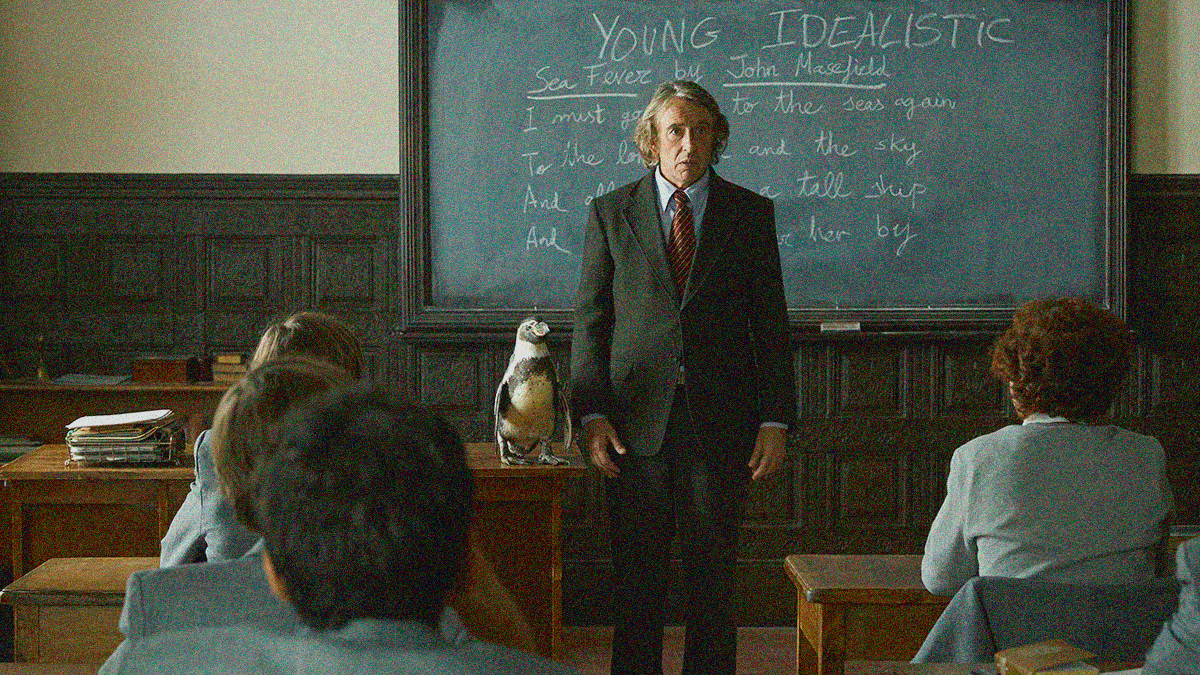
THE PENGUIN LESSONS
(in theaters)
"The Grinch's heart grew three sizes that day" is all I could think when Tom Michell (Steve Coogan) finally grows a spine and confronts the fascist who disappeared the granddaughter (Alfonsina Carrocio's Sophia) of a janitorial "contractor" at the school in which he worked. This Brit, who'd been teaching English all across South America as a means to avoid the pain in his heart, was hired precisely because he'd become apathetic through tragedy. A coup was brewing to ignite what's been dubbed "The Dirty War" and headmaster "Timbuck" (Jonathan Pryce) wanted to ensure none of his teachers threatened the safety of his wards—children of well-to-do and well-connected parents. Keep your head down, don't bother trying too hard, and survive the semester.
As Peter Cattaneo's The Penguin Lessons (adapted by Jeff Pope from Michell's own memoirs) tells it, this Grinch was fine looking the other way. When his students fooled around and paid little attention to his lesson, he merely soldiered through in a dull monotone to be able to tell himself he did his job if only they cared enough to listen. He slept on a park bench when forced to coach rugby. He took the week-long uncertainty of a nation's transition into a military junta as an excuse to travel to Uruguay and get laid. And when Sophia was taken just seconds after talking to him on the street, he lowered his eyes and pretended he didn't hear her screaming his name to help her.
That's where Juan Salvador comes in. Saved from an oil slick to impress a woman, Tom finds himself unable to shed his new black and white shadow. He tries throwing the penguin into the sea. Tries leaving him in his hotel room to make the staff deal with his removal. He even intentionally allows himself to be detained at customs in the hopes they'll refuse the animal entry into Argentina upon his return. But no one else wants the responsibility either. Whether locals or police, they all act like doting grandparents—spoiling the bird to satisfy their own fascination before forcing Tom to take it away, regardless of legality, and keep its fate out of their own hands.
Well, the penguin becomes Michell's little Cindy-Lou Who. He's a sounding board. A mirror. A reminder of the empathy all humans should let drive them instead of the fear that often takes its place. Tom's not alone in using him in these roles either. Sophia's grandmother talks to Juan Salvador like a therapist. Tom's fellow teacher (Björn Gustafsson) and even, inexplicably, Timbuck do the same. With so much political turmoil and danger looming, having someone to listen without the worry of betrayal becomes a godsend. Juan Salvador also diffuses the animosity brewing in Tom's English class. His presence holds their attention and Michell's gradual thawing to teach about community, compassion, and freedom gets them to shed the indoctrination of their parents.
It's an inspiring story on all fronts. Yes, Tom reclaiming his voice and courage is paramount, but we're also watching distracted students find focus and a cowardly principal rediscover the real power his position affords. I don't necessarily love the exploitative nature of the Sophia subplot allowing us to applaud aristocrats for daring to do the right thing once in their privileged lives (it's very copaganda-adjacent since the fishmonger never returns and the end credit text tells us 30,000 "Disappeared" remain unaccounted for to this day), but I get the need for a "win" to keep the vibes hopeful in what's billed as a feel-good true life tale of bravery. Considering what's happening in our world—specifically America with its own broad and illegal renditions—it proves performatively quaint.
That's the mission, though. Say something, but not too much. It's Michell's progression in a nutshell too. Yes, he stands tall and risks arrest. Yes, his actions snowball into potentially saving a young woman's life. But did he truly cause change? Did those students grow up to reject their parents' politics and return their country to democracy? Doubtful. These types of films generally show how the teacher betters the students' lives, not how the students are ancillary to the teacher remembering that refusing to look away does matter. Sure, it won't solve whatever issue you stood up for in the moment, but it will keep reminding people that fear is the point. The regime will get away with it, but you didn't blindly let them without a fight. This lesson isn't for those kids, though. It's for us.
- 6/10
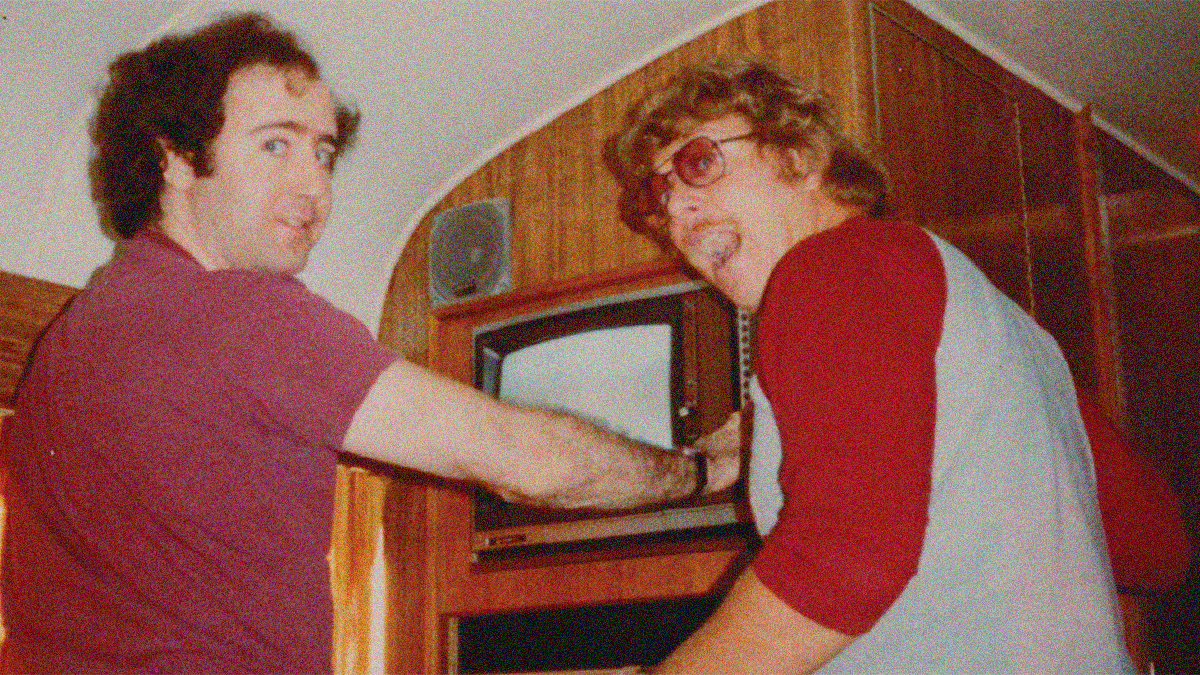
THANK YOU VERY MUCH
(limited theaters & VOD)
I was only two years old when Andy Kaufman passed, so my exposure to his comedy would always carry hindsight. Re-runs of "Taxi" on Nick At Nite gave me my first taste. Here was a funny actor doing a funny "foreign man" schtick. I didn't know the context or the avant garde nature of his stage act. I assumed Andy was playing a character he would then shed off-camera. So, I was surprised when searching for more work showed "foreign man" was one of many long-running bits built to intentionally blur the line between reality and performance. It's one thing if you watched Kaufman pivot his counter-culture popularity to the mainstream. It's another to learn Latka Gravas wasn't just "some role."
The rabbit hole I would eventually fall into—"Saturday Night Live" gags, Tony Clifton, intergender wrestling, etc.—is pretty much the same one that director Alex Braverman leads us through with Thank You Very Much. It's a lot more comprehensive than my own journey considering the internet of the 1990s wasn't quite what it is now. It's also a lot more personal thanks to the decision to only interview people who knew Andy personally and could speak from first-hand experience (Bob Zmuda, George Shapiro, Lynne Margulies, Marilu Henner, Danny DeVito, and the Iranian college roommate who offered up his speech patterns as a gift to exploit in his act). Unless Kaufman does suddenly appear to say he faked his death, this is about as complete a biography as we'll get.
It's funny that Zmuda prefaces his answer to the question of whether Andy did fake his death by cancer at age thirty-five with the words "I have to be careful what I say" because it shows how committed they all are to a good bit. Why ruin the possibility of the unknown by just flat out saying you watched him take his last breath? It won't make him more dead. So, evade it a bit. Reminisce about the time you two joked about actually faking his death over and over again to ensure no one would ever know if his real death was real. Kaufman's entire career was built off awkward silences and off-putting confrontation to the point where we as an audience needed to believe it was a joke just to not despise him. Why not sustain that same human desire for hope an awe regardless of the truth?
Not that everyone possessed hope or awe once Andy pushed the envelope further and further towards exposing the fact that life itself was an act. People did hate him too. You can't be as good as he was without conjuring just as much vitriol as love when walking that "man behind the curtain" tightrope of persona. It's no coincidence that Braverman pretty much asks every woman in this film what they thought of Kaufman's heel turn wrestling women. They all explain how they understood the joke and might have even laughed, but not one of them shied away from admitting they didn't like it. Because, as one says, this calculated act was just as misogynist as it was feminist. It was just as cruel and exploitative and violent as it was funny. That contrast was key.
Braverman does well to provide history for this truth whether the unfortunate trauma his parents bestowed upon him as a child when his grandpa died, the adoration for professional wrestling and the knowledge that the heel always got the biggest reaction his grandmother instilled, or the intrinsic place contrast plays in Andy's devoted practice of transcendental meditation. He takes us through the angles to show the impetus of the comedian's tonal shifts as well as the yearning to blow everything up. As one interviewee states, Kaufman was a mirror upon humanity and not everyone looking back appreciated what they saw. He forced audiences to judge him. He allowed them the space to hate him. And they were helpless from sitting with the person they became as a result.
While the biographical details, psychological through lines, and anecdotes are a huge part of the film's success, however, the big draw is the footage. Braverman got his hands on everything. Home movies. Behind-the-scenes shots. Reactionary audio recordings. Stand-up performances (including from Carnegie Hall). Wrestling matches. And a plethora of media clips you've never seen (and many you have). It's a time capsule of a man who refused to be anything but himself. A man who doubled down whenever the choice to unflinchingly commit seemed to only make things worse. Andy Kaufman was an icon to laugh at, share in his embarrassment, and abhor—often all at once. He was a singular talent who broke the rules and paved the way for much of what entertainment has become. Thank You Very Much provides the biographical foundation so you can draw the lines.
- 7/10
Cinematic F-Bombs:
This week saw Back in Action (2025), A Face in the Crowd (1957), and The Island (2005) added to the archive (cinematicfbombs.com).
Does anyone know the story behind this line reading in A Face in the Crowd? It might be a silenced f-bomb as presumed by a commenter since the silence feels total, but his mouth never leaves its “fuh” position before finally getting the “Fix” out. So, maybe he just has a stutter? An f-bomb in 1957 is wild (I say after finding one in 1953’s Wages of Fear translation as well).
New Releases This Week:
(Review links where applicable)
Opening Buffalo-area theaters 3/28/25 -
Audrey's Children at Regal Transit, Quaker
Day of Reckoning at Regal Transit, Galleria, Quaker
Death of a Unicorn at Dipson Flix, Capitol; AMC Maple Ridge, Market Arcade; Regal Elmwood, Transit, Galleria, Quaker
The Chosen: Last Supper Part 1 at Regal Elmwood, Transit, Galleria, Quaker
L2: Empuraan at Regal Elmwood, Transit, Galleria
Mad Square at Regal Elmwood
October 8 at Dipson Capitol
The Penguin Lessons at North Park Theatre; Dipson Amherst; Regal Transit, Galleria, Quaker
Thoughts are above.
Robinhood at Regal Elmwood
The Woman in the Yard at Dipson Flix, Capitol; AMC Maple Ridge, Market Arcade; Regal Elmwood, Transit, Galleria, Quaker
A Working Man at Dipson Flix, Capitol; AMC Maple Ridge, Market Arcade; Regal Elmwood, Transit, Galleria, Quaker
Streaming from 3/28/25 -
Alexander and the Terrible, Horrible, No Good, Very Bad Road Trip – Disney+ on 3/28
Bring Then Down – MUBI on 3/28
“It's a truly grim drama with blood and anger dripping off every frame. The cycle [of violence] might finally be over, but the damage has already been done.” – Full thoughts at jaredmobarak.com.
Queer – Max on 3/28
The Life List – Netflix on 3/28
The Line – Hulu on 3/28
The Rule of Jenny Pen – Shudder on 3/28
White Bird – Starz on 3/30
Promised Hearts – Netflix on 3/31
The Last Stop in Yuma County – Paramount+ on 4/1
Banger – Netflix on 4/2
Now on VOD/Digital HD -
Dark Match (3/24)
A Cursed Man (3/25)
Ex-Husbands (3/25)
Livestream (3/25)
Nocturnes (3/25)
Bring Then Down (3/28)
“It's a truly grim drama with blood and anger dripping off every frame. The cycle [of violence] might finally be over, but the damage has already been done.” – Full thoughts at jaredmobarak.com.
Los Frikis (3/28)
Renner (3/28)
The Rule of Jenny Pen (3/28)
Thank You Very Much (3/28)
Thoughts are above.
Thanks for reading Hey, have you seen ...?! Subscribe for free to receive new posts and support my work.

